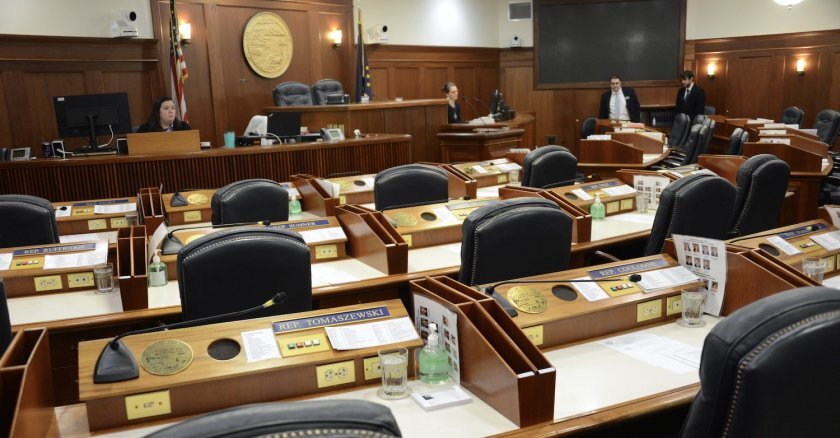In addition to an electoral system that rewards and enables bipartisanship, Alaska's middle class is bolstered by healthy unions, a robust public sector, a strong oil and gas industry, and the extraordinary success story of Alaska Native Corporations — America’s original socially responsible companies.
Alaska is the only state where bipartisan majorities control both legislative chambers, transcending party labels. Unlike the partisan gridlock seen in other states and Washington, D.C., in Alaska real fiscal conservatives work in legislative coalitions of Republicans, Democrats and independents to govern responsibly. Many of Alaska’s most powerful businesses and nongovernmental organizations, from Native organizations to labor unions, have a long tradition of supporting and collaborating with bipartisan legislative leadership.
The rule of law, functioning democratic governance and a strong middle class are mutually reinforcing institutions. Alaska has not been immune to national efforts to politicize the judiciary. Fortunately, our bipartisan legislative majorities have steadfastly defended our merit-based, nonpartisan judicial selection process. As a result, the integrity of Alaska jurists is beyond dispute and the rule of law is alive and well.
The rule of law is foundational for long-run economic growth. Alaska is one of the last places in America where hard-working blue-collar citizens can build a career and save for a dignified retirement. Over the decades, Alaska’s strong labor unions have worked closely with business leaders to promote economic development, while ensuring that state laws uphold workers’ rights and enable them to earn their fair share of profits and productivity growth.
Equally important, Alaska’s powerful, for-profit Native Corporations are engines of economic opportunity for the working class, including through “shareholder hire” policies. The Native Corporations’ jobs-first approach to social welfare is a major reason Alaska has high socioeconomic mobility and why its race-correlated economic inequality gap is narrower than in so much of the Lower 48. Alaska Native Corporations were established under the Alaska Native Claims Settlement Act of 1971; many have grown to be large, diversified companies that create nearly endless employment opportunities for Native people and in some cases pay substantial cash dividends to Native shareholders.
The influence of a growing middle class is just one part of the story of Alaska's governance success. The state's approach to elections is a major factor in nurturing its tradition of bipartisan governance and has been particularly beneficial to Republicans. Many Republicans at the federal and state level would love to be able to vote their conscience on a wide variety of legislation but fear that doing so would result in losing a closed, partisan primary. This primary electorate dynamic drives polarization, dysfunction and the constitutional crisis that is unfolding in Washington, D.C. In 2020, Alaska voters implemented a top-four, open-primary system, complemented by ranked-choice voting in general elections, liberating Republican legislators to vote their conscience and work across party lines.
Correspondingly, some of Alaska’s most powerful business leaders have worked hard to defend and re-elect these commonsense Republicans, recognizing that fiscally responsible bipartisan government is better for business than partisan gridlock or the wild pendulum swings of policy that create profound uncertainty at the federal level. The combination of open primaries, strong unions and pragmatic business leaders allows state legislative Republicans to win with a diverse voter coalition and participate in bipartisan majorities.
Imagine a country with a strong middle class, business leaders deeply invested in their community and institutions like unions that advocate and defend the interests of the middle class. Imagine a country where policymakers routinely work across party lines rather than one in which extremist politics dominate governance. We can rebuild that America. Alaska shows it is possible.
Zack Fields, a Democrat, co-chairs the Labor and Commerce Committee in the Alaska House of Representatives, where he has represented downtown Anchorage and surrounding neighborhoods since 2019.
Governing’s opinion columns reflect the views of their authors and not necessarily those of Governing’s editors or management.
Related Articles













